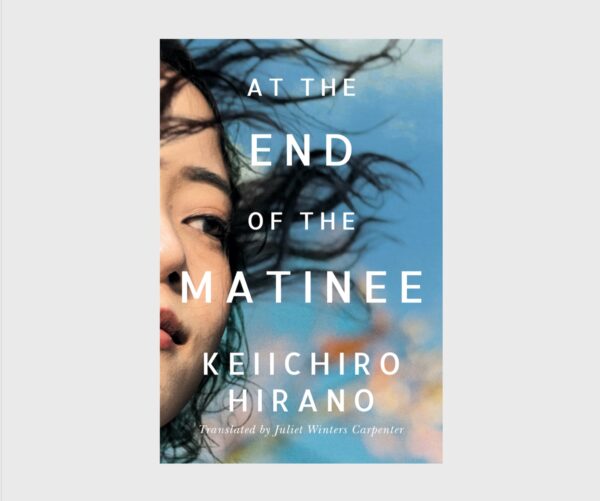We released 3 Short Movies on the occasion of publication of “At the End of the Matinee“, the English version of one of Hirano’s representative works.
Hirano talks about the secret story of the book, the reason why he writes novels, and the theme of “How we should face our past”.
Please have a look!
(The transcription)
Writing a Novel on the Theme of Love
Ever since I was a child, I felt that our world was not a forgiving one to live in. I felt like an outsider. I felt lonely. At the same time, I couldn’t let go of the desire to live in this world. The feeling of wavering between those two poles was what made me want to be an author novelist.
As a result, on one hand, my work involves thinking, either in very concrete or philosophical terms, about what causes all the suffering in the world, and how we should live our lives here. On the other hand, my novels are also motivated by the desire to forget reality, if only for a moment, and attain a feeling of release through fiercer, more extraordinary aesthetic experiences. Sometimes these extremes are distinct in my work, and sometimes they overlap.
Then, from the 2000s into the 2010s, a lot of things happened in Japan. There was a long economic downturn, compounded by the Global Financial Crisis. In 2011, there was the Tohoku Earthquake and Tsunami. That was followed by political chaos, and things like xenophobia and bigotry became enormous problems for society. Facing those issues head-on, and working from a place that was really a pit of despair, I kept writing novels that explored the practical question of how we should live our lives here.
I believe I achieved some success in that, but thinking over these problems was mentally draining. When I wrote At the End of the Matinee, I was exhausted, not least with Japan’s political situation at the time. I was sick of society, and I began to long for a way to briefly forget all the troubles of the world by immersing myself in a beautiful story.
In particular, division and opposition were huge social problems in Japan. I wanted to write a love story that could overcome that. Also, music is always a source of comfort for me. In my mid-twenties I wrote Funeral March, a long novel about composer Frédéric Chopin and painter Eugène Delacroix, set in nineteenth-century France. Even twenty years later, some readers still say it’s their favorite novel of mine. While writing it, I was thinking about beautiful music, sublime works of art, and human nobility and greatness. This gave me a great sense of happiness and fulfillment. And so the desire grew within me to write about music again. That’s why the hero of At the End of the Matinee is a classical guitarist.
Now, even for readers who want a break from reality, a story too much like a fairy tale or a dream will fall flat. What I wanted was to write a novel that looked unflinchingly at reality and its problems, and that made sense in terms of that reality, but was also a beautiful story. That, I thought, would be wonderful. So, I decided to make the heroine an international journalist, to bring global events into the story through her background.
I would make this couple’s romance the main theme, but also depict social realities through the story. That was the concept that started to take shape. At the center are Satoshi Makino, a male guitarist, and of course the female journalist, Yoko Komine,, but rather than just depicting their romance, I also explore other kinds of love. The love between parent and child, love for the area you were born and raised in, attachment to your mother tongue, love of music, devotion to beauty, platonic love between friends . . .The various forms love can take: this is the main theme.
The story looks reality dead-on and asks, well, given that, how are we to live? But I also I aimed to give readers the kind of experience only literature can offer—that sense of momentary freedom. As a result of writing it with these ideas in mind, it was very well received in Japan, and continues to be read, which is a great joy to me as an author.
Click the link below for the continuation.

